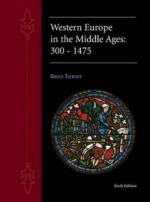|
This section contains 458 words (approx. 2 pages at 300 words per page) |

|
Meister Eckhart was known for the mysticism of his sermons, and, his style affected the preaching of other German scholars. For this reason some thirteenth-century sermons that are attributed to Eckhart, including the excerpt below, may well have been written and delivered by others. Spiritual poverty was a common topic among medieval mystics and often aroused the suspicions of the Church about the preacher's orthodoxy.
The poor in spirit go out of themselves and all creatures: they are nothing, they have nothing, they do nothing, and these poor are not save that by grace they are God with God: which they are not aware of. St Augustine says, all things are God. St. Dionysius says, things are not God. St. Augustine says, God is all of them. But St. Dionysius: God is nothing we can say or think, yet God is the hope...
|
This section contains 458 words (approx. 2 pages at 300 words per page) |

|




